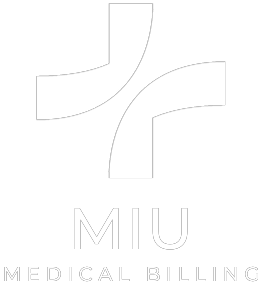Introduction
In today’s healthcare landscape, small medical practices face numerous challenges, from managing patient care to navigating complex billing and coding processes. Amid the ever-changing regulations, keeping up with medical billing can be daunting, often diverting valuable time and resources away from core clinical responsibilities. This is where medical billing services come into play, offering a comprehensive solution tailored to the unique needs of small practices. By outsourcing medical billing services, small practices can alleviate administrative burdens, optimize revenue cycles, and focus on delivering quality patient care.
The Complexities of Medical Billing
Medical billing is a multifaceted process that involves translating medical services into codes, submitting claims to insurance companies, and ensuring accurate reimbursement. It requires a deep understanding of coding guidelines, insurance regulations, and compliance standards. For small practices with limited staff and resources, navigating the intricacies of medical billing can be a significant challenge:
- Coding accuracy: Incorrect coding can lead to claim denials, delayed payments, and potential audits, impacting revenue and cash flow.
- Regulatory compliance: Staying up-to-date with ever-changing regulations and coding guidelines is crucial to avoid costly penalties and legal issues.
- Insurance follow-up: Tracking and following up on denied or underpaid claims can be time-consuming and complex.
- Timely filing: To avoid claim rejections and lost revenue, please complete all filing deadlines.
Medical Billing Services Benefit for Small Practices
1. Improved Revenue Cycle Management
One of the primary benefits of medical billing services is optimized revenue cycle management. Experienced billing professionals ensure accurate coding, timely claim submissions, and effective follow-up on denied or underpaid claims. This results in improved cash flow and maximized reimbursements for the practice.
2. Increased Coding Accuracy
Medical billing services employ certified coders with extensive coding guidelines and regulations. Their expertise minimizes coding errors, reduces the risk of claim denials, and ensures appropriate reimbursement for services rendered.
3. Compliance and Audit Preparedness
Staying compliant with constantly evolving regulations and coding guidelines can take time for small practices. Medical billing services have dedicated teams that stay up-to-date with industry changes, ensuring compliance and preparing practices for potential audits.
4. Time and Resource Optimization
By outsourcing medical billing services, small practices can reallocate valuable time and resources previously dedicated to billing tasks. This allows physicians and staff to focus on providing high-quality patient care and growing their practice.
5. Scalability and Flexibility
As small practices grow and expand, their billing needs may fluctuate. Medical billing services offer scalable solutions that can adapt to changing practice volumes, ensuring efficient and seamless billing operations during periods of growth or transition.
Choosing the Right Medical Billing Services Partner
Small practices should carefully evaluate potential partners to maximize the benefits of medical billing services. Here are some key factors to consider:
1. Experience and Expertise
Look for medical billing services with a proven track record of working with small practices in your specialty. Experienced providers will deeply understand your practice’s unique billing needs and can tailor their solutions accordingly.
2. Credentialed and Certified Staff
Ensure that the medical billing services employ certified coders and billers who are well-versed in industry best practices, coding guidelines, and compliance regulations.
3. Technology and Integration
Evaluate the technology and software solutions used by the medical billing services. Seamless integration with your practice management system and electronic health records (EHR) can streamline workflows and enhance operational efficiency.
4. Communication and Transparency
Effective communication and transparency are crucial in building a successful partnership. Choose a medical billing services provider that offers regular reporting, clear communication channels, and transparency in their billing processes.
5. Pricing and Scalability
Consider the pricing structure and scalability of the medical billing services. OPT for a provider that offers flexible and transparent pricing models that can accommodate your practice’s growth and changing needs.
Conclusion
In the ever-evolving healthcare landscape, Medical Billing Services offer a valuable opportunity to streamline operations, optimize revenue cycles, and focus on delivering exceptional patient care. By partnering with experienced and reputable medical billing services, small practices can alleviate the administrative burdens associated with medical billing, ensuring accurate coding, timely claim submissions, and effective denial management. Small practices can unlock the full potential of their financial performance with improved revenue cycle management, increased coding accuracy, and enhanced compliance and audit preparedness. By outsourcing medical billing services, practices can reallocate valuable time and resources towards core clinical responsibilities, fostering growth and delivering high-quality patient care. As small practices navigate the complexities of the healthcare industry, partnering with the right medical billing services can be a game-changer. By carefully evaluating potential providers and establishing clear communication channels, small practices can maximize the benefits of these services and position themselves for long-term success in an increasingly competitive market.




